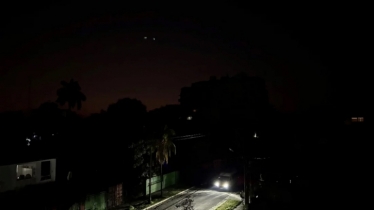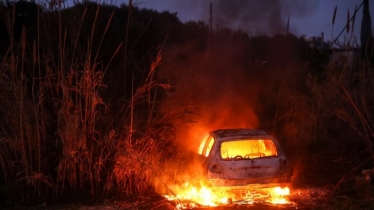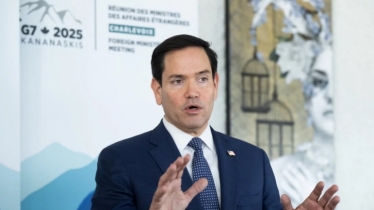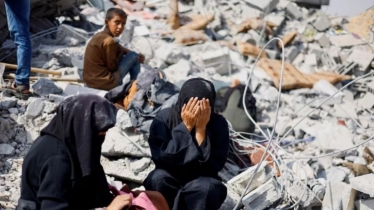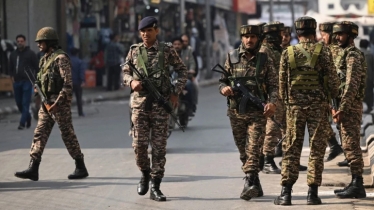
Abdul Aziz, center, who was injured when shrapnel from an Indian mortar wounded his arm, is helped by his son while he arrives to talk with journalists in Chiri Kot sector near Line of Control, that divides Kashmir between Pakistan and India, Wednesday, July 22, 2020. Villagers living along a highly militarized frontier in the disputed region of Kashmir have accused India of "intentionally targeting" civilians, but they are vowing that they would never leave their areas. Villagers say the fear of death is no longer present in their hearts after spending so many years in a state of shock and uncertainty.
APP, CHIRIKOT: Pakistani villagers living along a highly militarized frontier in the disputed region of Kashmir accused India on Wednesday of intentionally targeting civilians, but they vowed never to leave. Pakistan and India have fought two of their three wars over the disputed region since gaining independence from British rule in 1947. "Indian forces have been intentionally targeting us," said Abdul Aziz, 57, who was wounded July 3 when shrapnel from an Indian mortar wounded his arm. "Even our last child will fight to defend Kashmir if India attacks us."
Indian officials did not immediately comment but in the past they have accused Pakistan of starting the hostilities in violation of a 2003 accord and causing casualties in the Indian part of Kashmir.
Aziz and other villagers spoke with foreign journalists who were escorted by Pakistan´s military to the region to witness the plight of residents living along the frontier. Indian posts could be seen from the area using binoculars.
Aziz, sitting on a chair in the village of Chirikot with a bandage on his right arm, said most of the people who live along the Line of Control that separates the region between Pakistan and India have either lost family members or close relatives because of Indian firing in recent decades.
Standing next to him, villager Asad Zubair, 23, said he too was wounded by Indian artillery fire two years ago. "We are no longer afraid of death. It can come anywhere. We will live and die here," he said.
The region`s top Pakistani military commander, Maj. Gen. Amer Ahsan Nawaz, briefed journalists about Indian cease-fire violations in Kashmir, which is split between Pakistan and India and claimed by both in its entirety.
Pakistan wants India to resolve the issue of Kashmir under U.N. resolutions by allowing people living in the Himalayan region to decide whether they want to merge with India, with Pakistan or prefer independence.
The first war ended in 1948 with a U.N.-brokered cease-fire that left Kashmir divided, with the promise of a U.N.-sponsored referendum on its "final disposition" that has never been held.
The U.N. sent military observers to supervise the cease-fire in January 1949. Following renewed hostilities in 1971, a U.N. mission has remained in the area to observe developments and report to the secretary-general - not to the Security Council as other peacekeeping missions do.
Nawaz asked the international community to "play its role" in resolving the region`s status.
Pakistan is "ready for negotiations (with India), we are ready to talk to them, and we are ready to sit down and settle the issue on level ground," he said.
Tensions in the disputed Himalayan region have been high since last August. That´s when Indian Prime Minister Narendra Modi´s government stripped the part of Kashmir it controls of its semi-autonomous status, drawing protests from Pakistan. India has since eased restrictions in Kashmir.

